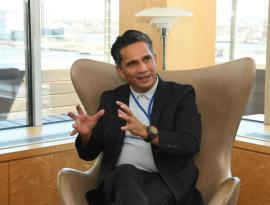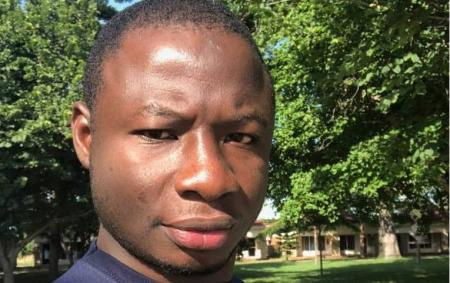State Of Emergency In Rivers State: Collateral Damage And Remediation (1)
While some Rivers State indigenes were agonizing over the Supreme Court’s decision barring the Federal Government from releasing the state’s monthly financial allocation—following the imposition of emergency rule by President Tinubu on March 18—the funds have now been released, ensuring that workers’ salaries will be paid at the end of the month. However, not all Nigerians are pleased.
Among the most aggrieved are members of the political class, who view the emergency rule in Rivers State as a suspension of democracy. This move disrupts the established democratic process and the principles of due process that govern public administration.
Following the swearing-in of Vice Admiral Ibok-Ete Ibas (rtd) as the sole administrator of Rivers State—replacing Governor Siminalayi Fubara—public administration in the state has effectively been relocated to Aso Rock, the presidential seat of government in the Federal Capital Territory (FCT). Governance is now dictated by directives from Abuja rather than by an elected governor who should be accountable to the people of Rivers State.
The National Assembly (NASS), in its endorsement of the emergency proclamation, has also assumed oversight of the Rivers State House of Assembly. This means that the sole administrator operates under directives from Abuja, in contrast to an elected governor who is expected to report to his constituents—the people of Rivers State—who had chosen their political leaders through democratic means. But with state assembly suspended how is the NASS going to have oversight function over it while on suspension? By democratic principles, elected representatives of the people of Rivers State should only be removed under three conditions:
By bypassing these democratic processes and instead using political crises as justification for suspending democracy, the people of Rivers State have been effectively disenfranchised, stripped of their civic rights for the six-month duration of the emergency rule.
The removal of the governor, deputy governor, and elected state assembly members has inflicted significant damage, not just on the political landscape but also on the socioeconomic stability of Rivers State.
Beyond this direct impact, the decision to impose emergency rule has tarnished Nigeria’s reputation as a democracy. President Tinubu, known for his advocacy of democratic governance, now faces criticism that this action contradicts his democratic credentials.
This decision also threatens to erase the democratic progress Nigeria has made since 1999. The country has maintained an unbroken democratic governance structure for nearly 25 years, marking a significant milestone in its post-independence political development. However, the handling of Rivers State’s political crisis risks undermining these gains.
Elder statesmen and political leaders—both within and beyond Rivers State—have raised concerns about the dangerous precedent being set. Since the 1966 and 1967 military coups, Nigeria has experienced intermittent periods of military and civilian rule. However, since the return to democracy in 1999, governance has been based on the rule of law and due process.
With Nigeria set to mark 25 years of uninterrupted democracy on May 29, the imposition of emergency rule in Rivers State, coupled with the opaque manner in which the National Assembly ratified it, has diminished the country’s democratic standing.
President Tinubu has justified the move by citing the need to prevent potential violence and safeguard vital oil and gas installations in Rivers State and the Niger Delta. However, as the saying goes, “The road to disaster is paved with good intentions.”
Ironically, following the installation of a retired military officer as Rivers State’s sole administrator, reports emerged that the Boki gas facility was set ablaze by militants last Sunday. This incident raises questions about whether the emergency rule has actually enhanced security or exacerbated tensions.
Despite the president’s defense of his actions, opposition leaders argue that the move was hasty and extreme. Attorney General and Minister of Justice Lateef Fagbemi has attempted to justify the decision by referencing Section 305(1) of the 1999 Constitution, which grants the president authority to declare a state of emergency. However, this constitutional provision does not explicitly authorize the suspension of elected officials, as has been done in Rivers State.
Fagbemi’s legal interpretation, which seemingly guided the president’s decision, is now being challenged as a potential Achilles’ heel for the administration. Critics argue that while concerns about security threats are valid, suspending a democratically elected government is a disproportionate and legally questionable response.
Furthermore, the Attorney General’s statement that similar measures could be applied to other states facing political crises has raised alarm. This stance risks encouraging political actors to deliberately incite crises in their states, knowing that it could justify federal intervention and the suspension of democratic governance.
Would this policy not lead to a proliferation of political violence across Nigeria, driven by opposition figures who see it as a means to destabilize elected governments? If a breakdown of law and order becomes a pretext for suspending democracy, then the nation’s democratic future is at stake.
The imposition of emergency rule in Rivers State has set off a chain of political, legal, and economic consequences that could have longterm ramifications for Nigeria’s democracy. If left unaddressed, this decision may not only damage the country’s democratic reputation but also embolden political actors to exploit crises for their own advantage.
To restore confidence in the democratic process, President Tinubu may need to reconsider the duration and scope of the emergency rule, ensuring that Rivers State’s governance is returned to its elected representatives as soon as possible to douse the rising tension even as the emergency remains in effect as former President Goodluck Jonathan did in three northern states. Failure to do so could make this episode a defining crisis of his administration, overshadowing his broader governance agenda.
If causing mayhem in a state can be legitimately cited as justification for a state of emergency proclamation by President Tinubu in Rivers State, and if this becomes the valid condition and gold standard for suspending democratically elected state government officials, as Attorney General Fagbemi alluded to in his press briefing, would it not become a preferred strategy for politicians to destabilize their opponents by fomenting or triggering violence to create an opportunity for the suspension of democracy in a state?
The parable of the jealous mother of a dead baby, who switched her lifeless child for a living one and accepted the arbiter’s solution to divide the baby, knowing that the child was not hers, is instructive. The point here is that electoral losers, particularly in gubernatorial contests, may be incentivized to incite trouble that triggers violence, leading to a declaration of a state of emergency and effectively denying the rightful winner the benefits of their victory.
If violence becomes a precondition for declaring a state of emergency, politicians may find it easier and cheaper to hire thugs to cause unrest and threaten national assets rather than pursuing legal battles, which involve hiring expensive legal teams, often composed of Senior Advocates of Nigeria (SAN), to defend or challenge mandates in court.
Even the legal recourse of challenging election outcomes in court has become a major flaw in Nigeria’s democracy, as the phrase “you can go to court” has become a mocking refrain used by some politicians who rely on pliable judicial officers to secure favorable rulings.
It may be recalled that the uncontrollable violence in the Western Region during the First Republic—infamously known as Wetie, when supporters of Ladoke Akintola and Obafemi Awolowo engaged in violent clashes—was the justification for the state of emergency declared by then-Prime Minister Abubakar Tafawa Balewa. It is because of this troubling historical precedent that the current declaration of emergency in Rivers State is causing unease, not just among politicians in the state but nationwide.
Given this context, there is an urgent need to address concerns and provide legally and constitutionally sound justifications for the seemingly extreme action. There must also be transparency in explaining how and why the legislative branch so swiftly ratified the executive’s decision, as the process has been shrouded in speculation and accusations of financial inducements—allegations that have been denied.
In the United States, from where Nigeria adopted the presidential system, government shutdowns due to budget disagreements often drag on until the last minute, with intense negotiations before lawmakers approve a resolution. Unfortunately, such extensive deliberation and scrutiny were absent when Nigerian lawmakers were expected to exercise their oversight function by ratifying the president’s decision within two (2) days if in session or ten (10) days if on recess. Critics have alleged that senators and House members betrayed their constituents for pecuniary benefits. If true, this is how democracies die—a point highlighted by Harvard professors Steven Levitsky and Daniel Ziblatt in their book, How Democracies Die, which chronicles how seemingly minor democratic violations, when accumulated, can erode democracy itself.










